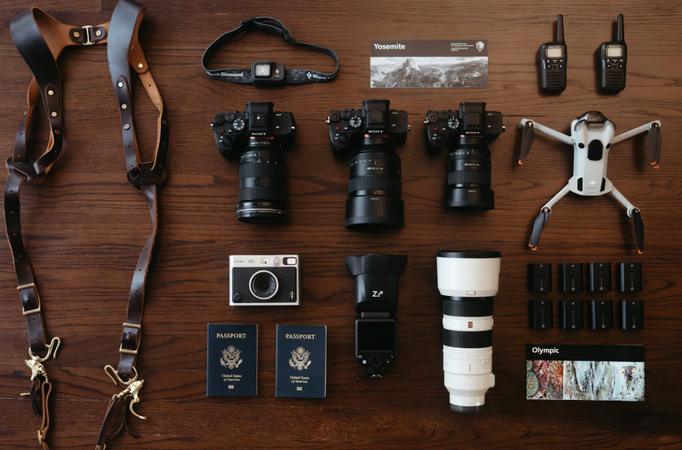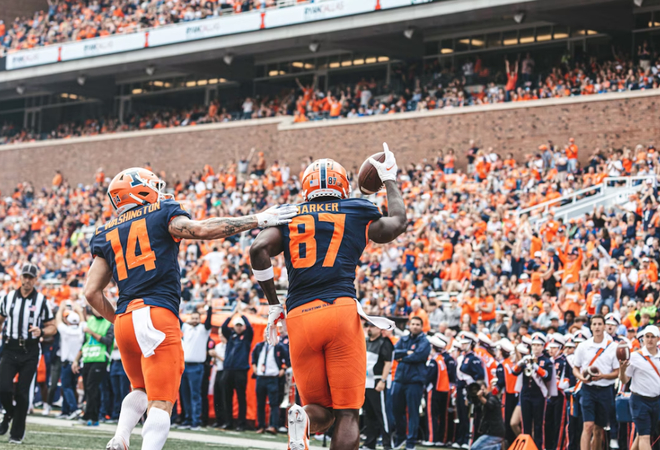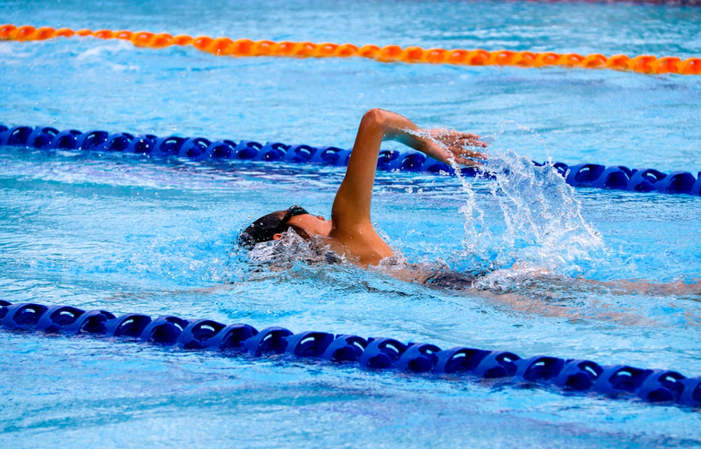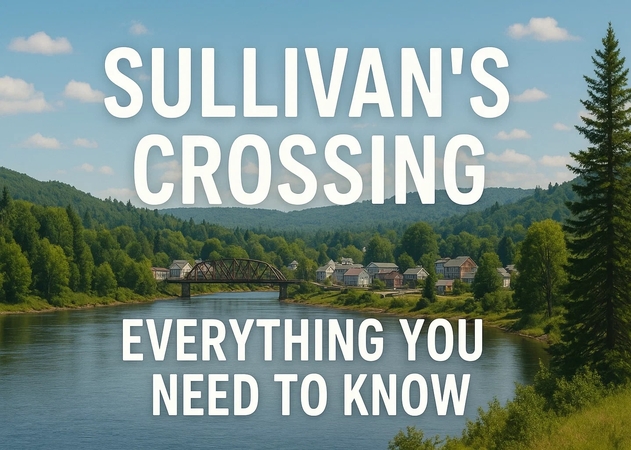Sports Photography: How to Capture Action Like A Pro
Sports photography isn't just about clicking the shutter-it's about timing, angles, and smart use of your gear. Whether you're at a bustling football game or a local indoor tournament, knowing how to photograph sports action makes a world of difference.
It is possible to make jaw-dropping action shots even for a novice because specific tools and an approach will help to do it. That's where the HitPaw FotorPea Photo Enhancer comes in-it's your go-to for transforming raw sports images into pro-level masterpieces, especially when motion blur or low lighting tries to ruin your shot.
What is Sports Photography?
Sports photography is a special form that specializes in photographing athletes in action during games, practice, or performances. It combines speed, accuracy, and anticipation into a single exquisite art. Basketball player in flight, or a swimmer emerging out of the water, the idea is to capture a decisive moment that can tell a story.
It's far more than just pointing and shooting-it requires skill, anticipation, and timing.Mastery of sports photography camera settings and an understanding of each sport's pace are essential. It is also a critical talent for journalists, content creators, and sports fans fond of posting exciting images of sports success.
Essential Gear for Sports Photography

Cameras and Lenses
One of the most critical sports photography tips is using the right gear. Your gear should not be the most expensive configuration, but some basics are a big help.
Best camera settings for sports photography
To feel the crisp detail of athletes, you require:
- Fast shutter speeds: 1/1000 sec or higher to freeze movement.
- Burst mode: Shoot multiple frames in quick succession.
- Wide apertures: f/2.8 or f/4 to isolate subjects and blur backgrounds.
When selecting the best camera for sports photography, look for models with high frame rates (10 fps or more) and fast autofocus systems.
Telephoto lenses and focal lengths
Lenses play quite an essential role in tight action shots. Telephoto settings such as 70-200mm and 300mm will allow you to remain at a distance and have a clear image.
Accessories
Monopods, fast memory cards, extra batteries
Supporting equipment affects your shooting performance:
- Monopods reduce hand fatigue during long sessions.
- Fast memory cards handle continuous bursts.
- Extra batteries ensure you never miss the winning goal due to power failure.
These tools, combined with the right lens, can dramatically elevate your photos, especially for those following sports photography tips for beginners.
Best Settings for Sports Photography
Shutter Speed and ISO
Freeze motion with fast shutter (1/1000 or higher)
A high shutter speed is necessary to freeze an action in the middle of an action. Anything that is any slower is at risk of motion blur.
Balancing ISO to avoid grain
There are darker settings, during which one needs to raise the ISO; however, excess can introduce digital noise. A balanced ISO (800-3200) works well, especially for indoor sports photography tips.
Autofocus and Drive Mode
Use AI Servo / Continuous AF for tracking motion
This mode tracks moving subjects and keeps them sharp-essential for fast-paced sports action.
Set burst mode for rapid action shots
Set the burst mode on; to get a series of shots, you will have more frames to select when editing.
Whether indoors or out, mastering these sports photography camera settings ensures higher success in getting usable shots.
Composition and Timing in Sports Photography

Anticipate the Action
Understand the sport to predict key moments
In each game, there are trends. Sometimes understanding when a basketball player would jump or when a tennis player is about to serve assists in taking some critical shots.
Framing and Backgrounds
Isolate the subject
Separation of the athlete, against clutter in the picture, can be achieved by the use of wide apertures and correct angles.
Avoid distractions
Be on the lookout for objects or persons who may spoil your shot. Wherever possible, use clean backgrounds.
Rule of Thirds and Movement Direction
Leave space in direction of movement
Framing athletes with room to move into the frame adds a dynamic touch and keeps images from feeling cramped-vital advice for sports photography tips for beginners.
Tips for Shooting Different Types of Sports

Indoor Sports Photography Tips
Deal with low lighting and fast movement
Arenas and gyms are usually poorly lit. Use wide aperture lenses (f/2.8 or faster) and have the adjust ISO accordingly.
Use higher ISO and fast lenses
While it may introduce some grain, a higher ISO helps retain clarity in low light, especially when paired with editing tools like HitPaw FotorPea Photo Enhancer.
Outdoor Sports Photography Tips
Work with natural light and shadows
The sun is intense; use it sensibly. Morning light and late afternoon light give a gentle warmth.
Choose proper white balance for time of day
When adjusting your white balance, you will get rid of unwanted color casts. These outdoor sports photography tips are constructive during sunrise or dusk events.
Common Mistakes to Avoid in Sports Photography
As much as it is essential to know what to do, it is also vital to avoid erring.
Motion Blur from Slow Shutter
Ghosted subjects are produced on a slow shutter. Do not go below 1/1000 sec.
Poor Timing and Missed Moments
This can easily result in a missed shot, and that is because of a lack of readiness. Predict the action and burst fire.
Under or Overexposed Shots
Use Exposure compensation to adjust light & dark using settings that tend to brighten or darken, including when using stadium lights or bright sun. These are common sports photography mistakes you can fix in post, but it's better to prevent them in-camera.
Editing Tips for Sports Photography
Cropping and Straightening for Impact
Centralize the action with the help of cropping and the elimination of distractions. Get straight horizons so that it is balanced.
Adjusting Exposure and Contrast
Adjust the brightness of your photos and provide contrasts to outline your subject.
Enhancing Sharpness and Color
Focus on the essentials to isolate them and alter the saturation of jerseys and backgrounds so that they appear brighter. Try editing sports photography in Lightroom or use HitPaw FotorPea Photo Enhancer to save time and get stunning results with one click.
Real-World Case Studies: Before and After Edits
Football Action Shot
The player was underexposed in the original photo, whereas the background was cluttered. In post-processing, cropping redirected focus onto the athlete, with boosted exposure and colors, classic editing sports photography in Lightroom, resulting.
Basketball Game Moment
The picture contained ISO noise and minimal blur. Using HitPaw FotorPea, clarity was enhanced, motion frozen, and skin tones corrected, turning a missed opportunity into a magazine-worthy shot.
Final Thoughts for Better Sports Photography
Mastering sports photography tips takes practice, but the right tools and mindset will fast-track your progress. Whether you're learning the best settings for indoor sports photography, experimenting with gear, or fixing images in post, consistency is key.
And don't forget to let HitPaw FotorPea Photo Enhancer take your sports photos from decent to dynamic with just a few tweaks.
FAQs
Q1. What is the best lens for sports photography?
A1. Telephoto lenses such as 70-200mm f/2.8 or 300mm primes will greatly suit taking close shots of action at a distance in detail.
Q2. How do I shoot sports photography on a budget?
A2. Start with entry-level DSLRs or mirrorless cameras with fast lenses (f/2.8-f/4), and use free tools or affordable options like HitPaw FotorPea for post-processing.
Q3. Can smartphones be used for sports photography?
A3. Yes, at least in bright conditions. To have more control, use third-party camera applications and burst mode.
Q4. Should I shoot sports in RAW or JPEG?
A4. RAW offers better editing flexibility, especially useful when correcting common sports photography mistakes like exposure or white balance issues.








 HitPaw Univd (Video Converter)
HitPaw Univd (Video Converter) HitPaw VoicePea
HitPaw VoicePea  HitPaw VikPea (Video Enhancer)
HitPaw VikPea (Video Enhancer)



Share this article:
Select the product rating:
Daniel Walker
Editor-in-Chief
This post was written by Editor Daniel Walker whose passion lies in bridging the gap between cutting-edge technology and everyday creativity. The content he created inspires the audience to embrace digital tools confidently.
View all ArticlesLeave a Comment
Create your review for HitPaw articles